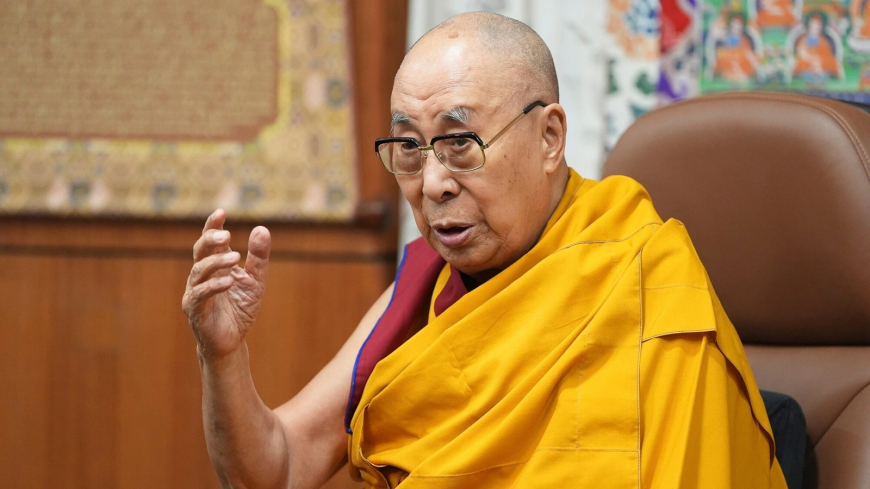Bharat Ratna for the Dalai Lama? Cross-Party Support Grows as He Nears 90
A cross-party push is gaining momentum to award the Bharat Ratna to the Dalai Lama as he turns 90. Discover the significance, support, opposition, and what this means for India-China relations.

New Delhi, July 7, 2025 — The debate surrounding India’s highest civilian honour has taken center stage this month, as a parliamentary forum comprising around 80 Members of Parliament (MPs) pushes for the Bharat Ratna to be conferred upon His Holiness the 14th Dalai Lama. With the revered spiritual leader turning 90 on July 6, the timing has intensified discussions across political, cultural, and diplomatic spectrums.
The initiative, seen by many as a symbolic acknowledgment of the Dalai Lama’s lifelong dedication to peace, non-violence, interfaith harmony, and humanitarianism, has attracted cross-party support. Yet, it also opens up a complex geopolitical dialogue, particularly in the context of India’s delicate relationship with China.
The Parliamentary Push: A Rare Political Consensus
The call for awarding the Bharat Ratna was led by a multi-party parliamentary forum, reportedly backed by MPs across ideological divides, including those from the Bharatiya Janata Party (BJP), Indian National Congress, Trinamool Congress, Aam Aadmi Party, and regional parties.
While official confirmation from the Prime Minister’s Office (PMO) is pending, senior MPs have already submitted a formal representation to the Union government advocating the honour. According to sources familiar with the proposal, the MPs argue that the Dalai Lama’s contribution to India and humanity goes beyond religion and resonates with the core values enshrined in the Indian Constitution.
Why the Dalai Lama?
1. A Global Icon of Peace and Non-Violence
The Dalai Lama has, for over six decades, symbolized non-violent resistance, even after being exiled from Tibet in 1959. He made India his home, establishing the Tibetan Government-in-Exile in Dharamshala, Himachal Pradesh. His teachings have influenced millions globally, promoting values of compassion, tolerance, and universal responsibility.
2. India as His Spiritual and Political Shelter
Since 1960, India has provided refuge to the Dalai Lama and thousands of Tibetan exiles. His unwavering reverence for India, which he often refers to as “the guru,” makes the gesture of Bharat Ratna especially significant. It is widely seen as a way for India to acknowledge his cultural integration and deep respect for Indian philosophical traditions like Buddhism, Vedanta, and Ahimsa (non-violence).
3. Past Recognition
In 1989, the Dalai Lama was awarded the Nobel Peace Prize for his efforts to resolve the Tibetan issue peacefully. He has also received the US Congressional Gold Medal and several global honours. Yet, the Bharat Ratna from India would represent an unprecedented tribute from the nation that has been both his sanctuary and partner in promoting global peace.
A Political Hotbed: Support and Resistance
While the support is substantial, the recommendation hasn’t been without political ramifications.
✔ Supporters’ Perspective:
Proponents argue that conferring the Bharat Ratna would send a strong cultural and ethical message—that India stands firmly with the principles of peace, religious tolerance, and moral leadership. Some even compare the Dalai Lama’s spiritual stature to that of Mahatma Gandhi, who himself never received the Bharat Ratna posthumously.
“This is not just about Tibet or Buddhism. This is about honouring someone who has spent his entire life serving humanity,” said a senior MP involved in the proposal.
✖ Critics’ Viewpoint:
Opponents caution that such a move may strain India’s already tenuous relations with China, which continues to view the Dalai Lama as a separatist. Given recent military tensions in Ladakh and Arunachal Pradesh, some policymakers argue that the timing may not be diplomatically prudent.
Others contend that the award should ideally be reserved for Indian citizens, although precedent exists (e.g., Nelson Mandela, Khan Abdul Ghaffar Khan) for honouring non-Indians.
Diplomatic Implications: A Subtle Signal to Beijing?
Any move to officially recognise the Dalai Lama with the Bharat Ratna would carry significant geopolitical weight. It could be interpreted as a soft-power assertion by India, especially at a time when border tensions with China continue to simmer. It may also serve as a reminder of India's moral diplomacy, where values and principles carry influence beyond conventional politics.
Analysts note that India’s decision may mirror its recent strategic tilt—strengthening ties with Western democracies, bolstering domestic defence, and reaffirming cultural pride. Recognising the Dalai Lama may fit into this larger narrative, especially amid rising calls for a values-based foreign policy.
What Happens Next?
As the Dalai Lama marks his 90th birthday, the government now faces a sensitive yet historic choice. While no official announcement has been made yet, Prime Minister Narendra Modi has in the past conveyed birthday wishes to the Dalai Lama publicly, hinting at a warm diplomatic posture.
Should the honour be announced in the coming months, it would not only cement India’s recognition of the Dalai Lama’s enduring legacy but also send ripples across the global stage.
About the Bharat Ratna
The Bharat Ratna, instituted in 1954, is India’s highest civilian award, conferred for exceptional service towards the advancement of art, literature, science, and public service. Past recipients include Mother Teresa, A.P.J. Abdul Kalam, Atal Bihari Vajpayee, Sachin Tendulkar, and Lata Mangeshkar.
The award is not limited to Indian citizens and may be conferred posthumously, further strengthening the case for the Dalai Lama.
Conclusion
Whether the Dalai Lama receives the Bharat Ratna or not, the groundswell of support from across India’s political spectrum speaks volumes. It signals a rare moment of consensus in India’s often-divided political landscape. It also reaffirms the country’s commitment to moral leadership, spiritual values, and international solidarity.
At a time when global politics is often defined by division and conflict, honouring a figure who embodies peace and universal compassion might be more relevant than ever.














